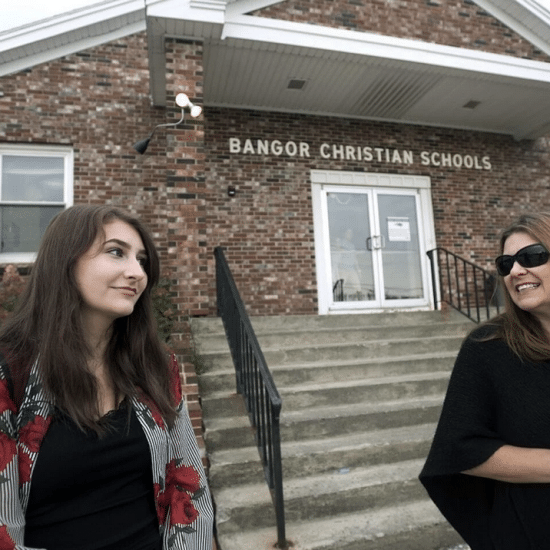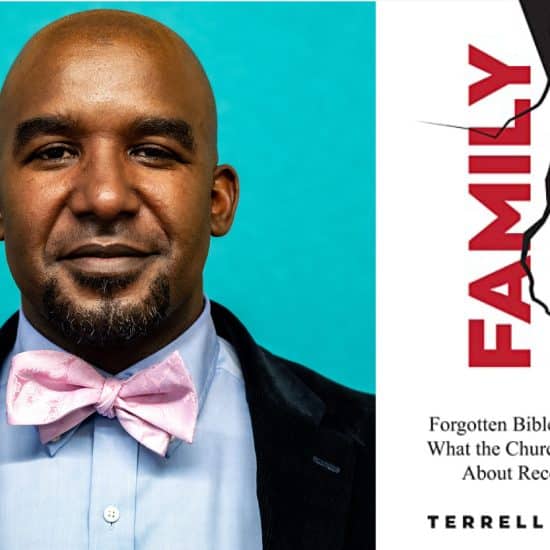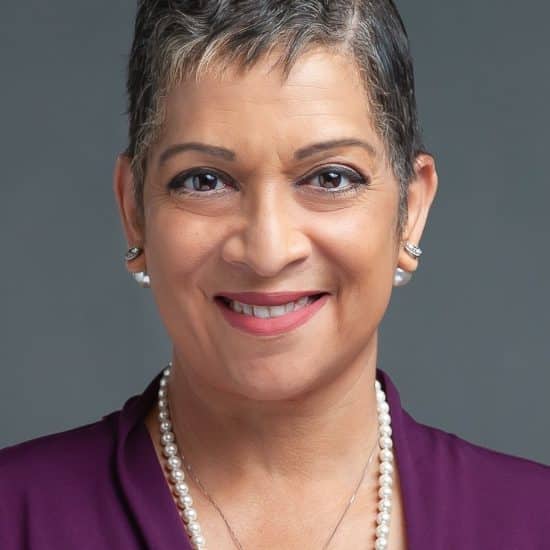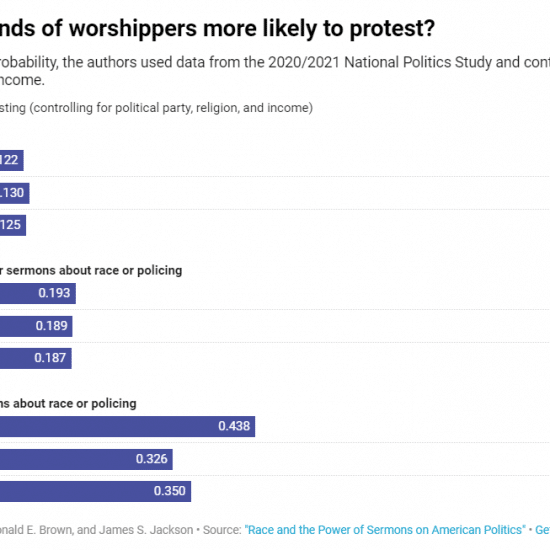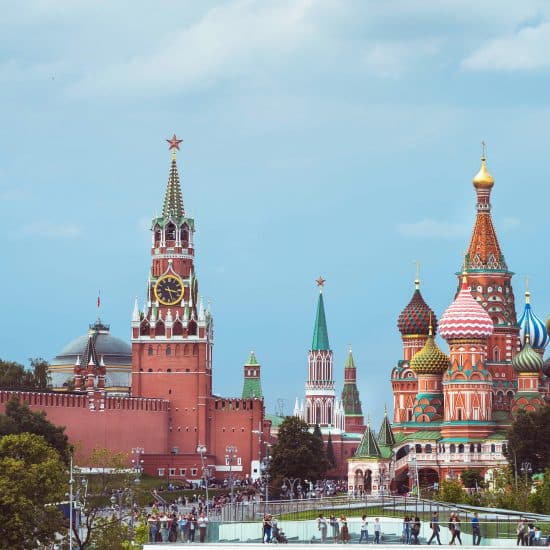For many Baptists in the United States, the separation of church and state is no more than a historical concept or fodder for the culture wars. For Baptist minority groups in other countries, however, it can be a matter of survival.
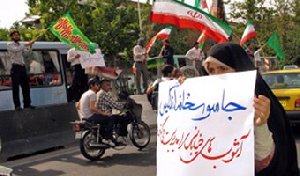
An Iranian protester holds a placard during a protest in Tehran. (REUTERS/Fars News)
|
While American evangelicals quibble over controversies like holiday greetings in department stores, other Christians around the world face intimidation, arrest and violence as members of unpopular minority faith communities.
Christopher Marsh, director of the J.M. Dawson Institute of Church-State Studies at Baylor University, calls it “the allure of establishment.”
“Religious groups that have fought for freedom forget the ideal they fought and died for,” Marsh said. “Separation is about freedom, and freedom means nothing if it doesn’t protect ‘the least of these.’”
Zaur Balayev, a Baptist pastor in Azerbaijan, served 10 months of a two-year prison sentence imposed after his conviction on what his supporters insist were false charges. Since Baptists in Balayev’s small town of Aliabad established the first congregation in 1993, they have had periodic brushes with the law for meeting without a license.
That is despite the fact that Baptists in Aliabad have been trying to register for the last 15 years but have been unsuccessful because of stonewalling by local bureaucrats who view them as outsiders and an undesirable influence in the community.
A Baptist World Alliance delegation visiting Azerbaijan in January concluded religious freedom was only partially accorded. Muslims and Orthodox Christians meet virtually without restriction, the group said, but the same is not true for Baptists.
The head of Azerbaijan’s Baptist union said recently Baptists have been described in media as “enemies of the state.”
“The strategy of the authorities is to pressure the Christians step by step until there will be no more Christian activity here,” Balayev said in a recent report to the European Baptist Federation.
The federation, a regional branch of the Baptist World Alliance, is working on several fronts to advance human rights and religious freedom in the Middle East and former Soviet Union. The Cooperative Baptist Fellowship is earmarking a third of an offering to be collected at its upcoming general assembly in Houston to support those efforts.
“Many CBF field personnel have to work in countries that do not guarantee basic human rights or care for religious freedom,” said Jim Smith, director of field ministries for the CBF. As of May, all pastors held in Azerbaijan were out of jail, Smith said, “but you never know if that will continue to be the case.”
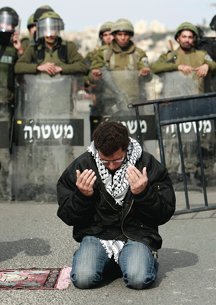
A Palestinian worshipper prays as Israeli police stand guard outside Damascus Gate in Jerusalem’s Old City. (PHOTO/Steve Evan/Wikimedia Commons)
|
In places like Azerbaijan, Baptist groups struggle against non-Christian religions or secular governments. In others, conflicts are of a more intramural variety.
In parts of the former Soviet Union, for example, Orthodox majorities view themselves as entitled to the favored status they enjoyed prior to the communist era and rapidly growing evangelical groups as an affront to national pride.
Last year, Baptists in the city of Lipetsk, Russia, a focal point of tension between Baptist Christians and the Russian Orthodox Church, complained local authorities were using bureaucratic methods to restrict their activity.
Vitaly Vlasenko, director of external church relations for the Russian Union of Evangelical Christians-Baptists, said government officials in Lipetsk obviously are partial to the Orthodox, but he doubts they are singling out Baptists for discrimination. Vlasenko did say, however, processes of registration, documentation and taxation for churches have become more complex, and disputes once settled through negotiation with local officials now often wind up in court.
In February, the International Baptist Theological Seminary in Prague, Czech Republic, convened a gathering of European Baptist and Orthodox scholars to promote understanding between two Christian groups often at odds over issues like proselytizing and the separation of church and state.
Planners said a lot of problems stem from misunderstandings related to the Orthodox notion of canonical territories and canon law and of evangelical emphases on religious freedom and evangelism.
In other parts of the world, church-state conflicts are more volatile. In the Gaza Strip, evangelicals face pressure from both Muslims and Israel’s military.
“We live between two fires,” Hanna Massad, pastor of Gaza Baptist Church, said in a message at last year’s New Baptist Covenant Celebration in Atlanta.
One, Massad said, is “the fire of the Israel occupation,” which he described as a “siege.” Massad referred to Israel’s two-year-old blockade of Gaza, which severely restricts travel and postpones rebuilding of homes destroyed or damaged by missiles during hostilities that ceased months ago.
In December, Massad’s church, the only Protestant church in Gaza, was damaged in fighting between Israeli troops and Hamas militants. Previously, Palestinian police twice seized the six-story building as a sniper post.
“Also we experience the fire of the militant Muslim, who is not happy about what we do and who we are,” Massad said.
Two years ago, the Baptist manager of Gaza’s only Christian bookstore was kidnapped and murdered, presumably by Muslim extremists.
Baptists in parts of Asia, meanwhile, face hostility from Buddhist or Hindu extremists who view evangelism by Christians as a threat to the social order. Riots in Orissa, India, in December 2007, were described as the worst-ever attacks targeting Christians in democratic India.
Bonny Resu, general secretary of the Asia Baptist Pacific Federation, said the attacks in Orissa affected the poorest of the poor. “Their only crime is that they have chosen to believe in Christ according to their conscience,” Resu said in 2008.
Marsh said Baptists in America would do well to consider experiences of oppressed religious minorities in other parts of the world in evaluating arguments about civil religion in the United States.
“When we Christians are the majority, establishment or accommodation sounds great,” he said. “But when we are the minority, we complain if Hindus promote Hindutva or if the Orthodox seek special accommodation for their church.”
Bob Allen is senior writer for the Associated Baptist Press.

